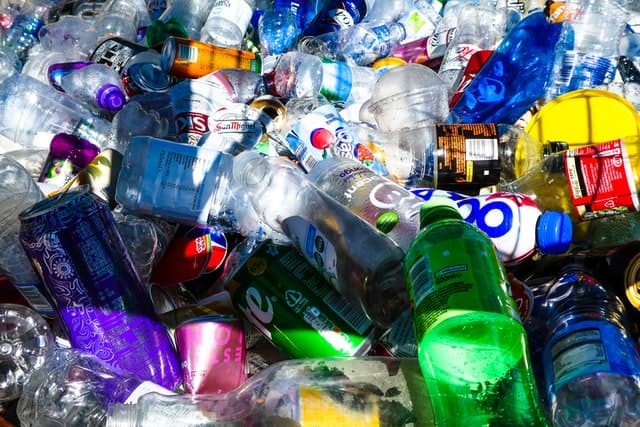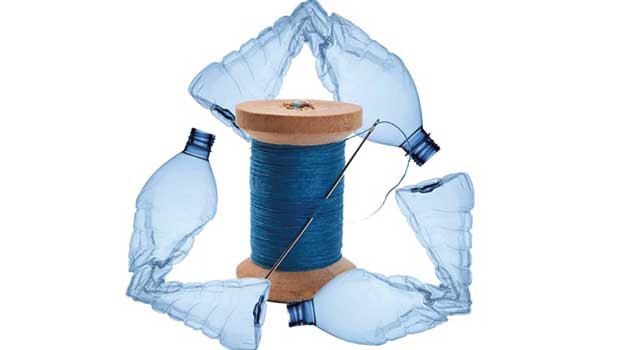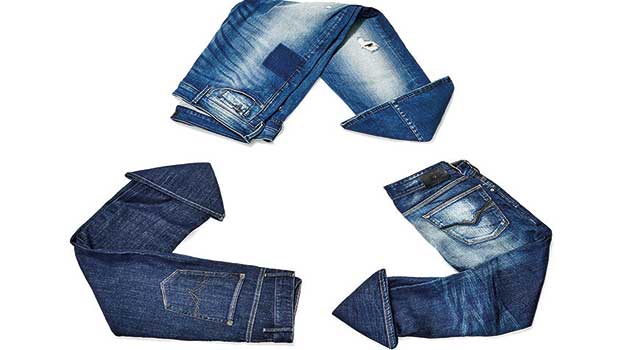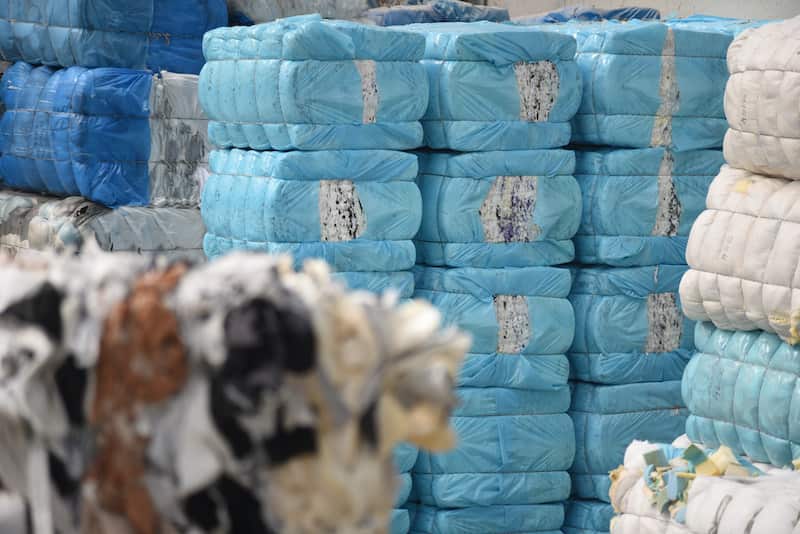A bottle and a reusable coffee cup of Nalgene are used for this. The free trade is your coffee and you consume only organic coffee. But what do you wear clothes?
Will you worry as much about what’s going on with your body as you bring into it? Vintage and second-hand are fantastic.
It’s also a rage to purchase products from businesses which recycle or are entirely vegan. But the next big trend in sustainable fashion is designers that use sources like polyester, water, bottles and even nets to produce clothes from recycled plastics.
Each plastic piece ever made is still available today. Most of the plastics are not biodegradable — they are just breaking into smaller and smaller plots and end up being dumped into the ocean and swallowed into hundreds of animal species with more trash than we understand readily.
The idea that recycled PET bottles are turned into clothing is not new. Last couple years, a growing number of textile firms, businesses and environmental organisations have started to turn plastics into fabric in order to combat global plastic waste. But with this method, there is a slight problem. Research has now shown that the biggest source of plastics in the ocean could be microfibers — thin synthetic threads of less than one mm in size.

Recycled plastic clothes will hurt more than good if this is the case. Plastic needs to go, but it won’t vanish quickly as businesses and people continue to cut down. The world would have about 400 million metric tons of plastics by the year 2050 if we use and dispose of it at the current pace. Recycling takes place here. Whilst only a small portion of plastic is currently recycled, more and more models turn plastic residues into clothes and accessories – as you guessed. Why not wear it if it’s going to be around for hundreds of years?
So, in the war on waste we dug fashion brands that picked up the garbage and gave the everlasting waste a new life. There are the top fashion companies that use recycled plastic to manufacture garments.
Ecoalf
This Spanish brand was founded on the principals of recycling to make a truly sustainable fashion brand. Ecoalf uses discarded fishing nets, post-consumer plastic bottles, worn-out tires, post-industrial cotton, and even coffee grinds to create their outerwear and swimsuit lines. The website says: “In order to ensure 100 percent transparency and provide the highest levels of quality, our team manages the full process from waste collection to recycling technologies, manufacture, design and retail.”

Gucci
brand Gucci was one of the first luxury fashion houses to use ECONYL® – a 100 percent regenerated nylon yarn made from recycled fishing nets in their men’s outerwear. In Gucci Equilibrium, a platform that highlights the brand’s work to bring positive changes to the fashion industry, the brands switch from virgin to recycled plastic beginning in 2015 is highlighted.
Bethany Williams
Bethany Williams argues that social and environmental issues go hand in hand, and we can create creative sustainable approaches through the discovery of the relationship between these issues. Each garment is 100% sustainable and made in the UK, even down to the buttons which are handcrafted in the Lake District. She has collaborated with TIH Models, a new modelling agency supporting youth in London affected by homelessness, casting Kris McAllister and Mustapha, both homeless and unemployed in London, for the collection Women of Change.

Doodlage
Doodlage is a fine combination of sustainable and creative development centered in India. These are made from organic cotton, maize and banana fabrics that are environment-friendly. Another source of fabric is the export “wastage” of left-hand or inferior recycled textiles from major manufacturers. These also have products that many retailers have not used since cutting. Such bits and pieces come along, each with their own history, much like a puzzle piece.
Re;code
Re;code is an upcycling brand from Korea. Each product has a story in the collection and creates a new value culture instead of waste. The research for the mentally handicapped and the ‘Goodwill Shop’ is built for the restoration and renovation of saved items.
Girlfriend Collective
Girlfriend Collective is a very transparent company which ethically produces recycled plastic sports arms and leggings. Their recycled polyester consisting of Taiwan plastic bottles and nylon transforms recycled fishing nets into ECONYL ®, which would otherwise stifle countless marine creatures in the ocean.
Both materials are suitable for active clothing with their wetting ability and GC is able to manufacture fashionable apparel for all, in a variety of beautifully OEKO-certified, healthy treated colors from XXS to XXXL.

This up and coming Athleisure Company is committed to making its clothing out of sustainable materials in ethical processes. Girlfriend Collective launched its line by giving away free leggings. The original leggings were made from 25 post-consumer recycled plastic bottles from Taiwan. The newly released range of lightweight work-out clothing – the Lite Collection – is made from recycled fishing nets.
Veja
With their launch of a material called a B-mesh (“Bottle Mesh”), the French company Veja, which is well-known worldwide for making sustainable shoes, brings fair-trade footwear and accessories to the next level. Each pair of sneakers contains three bottles. The fabric created from them is both respirational and waterproof – perfect for footwear. You can also keep the remaining shoe smiling with a large proportion of environmentally friendly products such as organic cotton and rubber from farmers who have a living income.
Patagonia
In ethical outerwear, Patagonia manufactures hardy products consisting of a large proportion of eco- friendly materials such as recycled down, wool and polyester. They built fleece in 1993 from recycled plastic bottles, and their materials have only been improved since that period. A repair and reuse program is also in place and your products from Patagonia should last for a long time. This company has made Patagonia the first company to produce waste fleece since 1993 from recycled polyester made of post-consuming soda bottles. Now the company manufactures its recycled polyester fabrics from a mixture of alcohol, waste, and worn-out clothes.

Mara Hoffman
Mara Hoffman is a lifestyle women’s brand with designer clothing that is long-lasting and high-quality. It uses a range of earth-conscious materials including GOTS certified cotton, recycled nylon and recycled polyester, and some products are Oeko-Tex STeP certified, too. From block colours to bubbly patterns, Mara Hoffman has got you covered from the beach to the altar and everywhere in between.
Elle Evans
Melbourne-based swimwear label Elle Evans is leading the way in sustainable swimwear, creating gorgeous swimmers for women and children made out of post-consumer waste fabrics. They also offer a take-back service so your worn out pieces can be disposed of thoughtfully. If you care about fashion and the future, this is the brand for you!
This company makes nature-inspired innovative swimsuits to order in their ethical workspace in Melbourne, Australia. Using ECONYL® 100 percent regenerated nylon yarn made from the ocean and landfill waste that was sorted, cleaned, regenerated and purified back to its original quality in a process that is less harmful to the environment than the production of virgin nylon. Sustainable practices are the backbone of Elle Evans.
Other brands producing fashion product from recycled plastics are TWOTHIRDS, Rothy’s, ADAY, Batoko, Repainted, Kathmandu, Zurita, Bundgaard Nielsen, Guppyfriend, Suave and many more.

























